Like a writer, he stumbles upon beauty. And like a writer he has to edit out extraneous material.
He is a sculptor of form while I am a sculptor of words.
This photo reminds me of what we both do.
It reminds me of editing.
And writing.
The decisions. Which do you keep? The fantasitcal art you see hidden? Or the tangled trees?
Or try to include a bit of both?

6:30 am and 69 degrees.
I draw the line at mittens but I do still have my flannel jammies on.
And coffee. Must. Have. Coffee.
We have been talking about editing.
I WANTED to tell you about the time my son and his friend dismantled the front porch of my 1800's farm house with just a hammer and a screwdriver.
They were 8 years old.
Big dreams.
They had big dreams.
No one told them they couldn't do it.
Least of all me as I had just run to the store for milk and eggs.
I was a bad mother you see.
I abandoned my child. Left him alone for an hour in the middle of the afternoon.
With a creative friend.
We lived in the Midwest. I was in my last semester of graduate school. We were putting our house up for sale and moving back to Washington State.
And I pulled into my driveway to see my beautiful, picturesque, wrap around veranda.
In pieces on the ground.
I will leave what happened next to your imaginations.
But.
When you have big dreams, there is no limit to what you can do.
Editing. Big dreams. Trees or art. Which dreams do you choose and which do you abandon?
What sentences do you keep and which do you prune?
Let's talk about the struggle.
Editing.
I'll start.










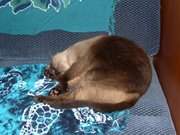


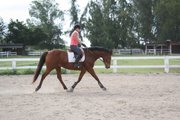
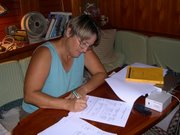

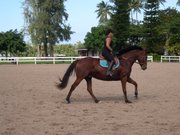
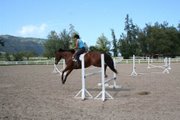
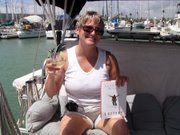
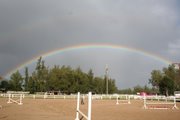





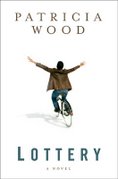
21 comments:
It has been amazing to me how my beta readers can find themes intertwining through my stories that I was unaware of. When they discover these themes I can go back and enhance them in my editing.
I wonder are these happy accidents or subconscious creativity on my part? I do know when I try to initiate themes on purpose it appears forced.
How do you do it?
Oh sure, Pat, post this when I am in the middle of my last edits!
The hidden-themes thing is pretty cool, and common; I believe they're subconsciously created.
As for how I edit, I prune judiciously after the first draft is done, when the scrub is easier to spot.
Clunky sentences get smoothed. Loose connections get tightened. Weak adverbs and adjectives get the axe.
Anything that's said twice loses its companion--look for this "bad habit" writers share at the beginnings and ends of paragraphs. When we're drafting, we often add sentences that clarify the preceding one.
We can have trees and art, right? Trees that ARE art. Art that comes from trees. (Getting deep here, ha!)
Where, in the Midwest, did you live? I'm Midwest born and raised.
I was in Dekalb, Illinois from 1975 to 1982 attending Northern Illinois University. Go Huskies!
My claim to fame?
I worked at Kishwaukee Community Hospital laboratory with Jenny Crawford -- we would have huge BBQ's at my house. Everybody from the lab would come including Jenny's daughters...one of those daughters became THE Cindy Crawford.
I kid you not.
You mean your son edited your front porch??!!!
Oh my. I can see my 10 year old doing that.
I'm carving a halfway decent story out of a mess of words. Thanks to today's post I feel like I'm on the right track.
I subscribe to the Samuel Johnson School of Writing:
"Read over your compositions, and where ever you meet with a passage which you think is particularly fine, strike it out."
In first or second grade, my best friend's (crazy) mother asked us to pick some oranges. We laid the tree bare. We got in trouble. At the time, the injustice was clear to me and it still is to this day.
I love finding themes and making connections. It makes my brain happy.
PS - Love that photo.
I've learned to trust my instincts. If a sentence or paragraph bugs me, I either nuke it or rework it until I'm happy with it. The nuking part is always hard, though.
I once painted a sunny-side-up egg on the ceiling of my high school year book office. I felt it was brilliant. Sadly, the school administration didn't see it the same way!
Thanks Katie. Graffiti in the middle of nowhere actually. Interesting yeah?
mg I love that!
Now you guys what about this.
"The first 50 pages workshopitis" and the rest sucks?
LOL, Orion, about the 50 pages having workshop-itis. My first novel does. I think it gets much better as the novel goes on, as my craft improved.
I do an intense edit. I go through every single word of my manuscript after I finish it. I usually do not edit while I'm writing because that tends to stop my creative flow.
I add and delete - weak verbs, unnecessary adverbs, etc. But I also look for where I can inject sensory detail - all five senses.
I'm also reading a book called BETWEEN THE LINES: MASTERING THE SUBTLE ART OF FICTION that has TONS of great advice. I'm looking for ways to play with my theme (and like Therese, I also believe it is a subconscious thing the first time around - the editing mode is for the conscious effort), ways to add description, and language that "pops."
My sister gets a lot of people commenting on themes she didn't know she'd written in, too.
In writing the first draft, I sometimes deliberately write in things a second time, because I hit a scene where I think, "The info I mentioned 'there' would fit just as well or better 'here'." When I edit, I just have to remember one has to go.
And sometimes I come across scenes that I know can and need to be chopped down, or severely pruned (to extend the spontaneous gardening metaphor), but I'm not always aware how to go about it (one of my challenges in editing).
My first chapter does get a lot of attention early on, but I'm trying to give the rest of it an equal shot (and having my writing group critique the whole thing chapter-by-chapter and not just bits here and there).
The art or the trees. I had so much of that when I was cutting my book. I had to do some major chopping and every scene I read I had to ask myself, "Does this really enhance and drive the plot forward?" If it didn't, I cut it. I sometime cut ten and fifteen pages at a time. Ouch!
But near the end of the book (I'd gotten quite callous by this time; I was surprised) I ran into a scene I'd actually added after completing the book. I highlighted it and cut it.
And every fiber of my being said, "Stop!!!" I could not cut that scene. It is one of the only scenes in the whole book that does not directly advance the plot. But I could not live without it.
Why? It is the achievement of a year's long goal for two of my main characters. It is beautiful and emotional and joyous ands fabulous, and I loved it. I had to break my own rule and in the end, I was really glad I did.
But if I had gone ahead and rationalized that way with every scene I cut, I would still have the 210,000 tome I started out with.
I guess in that case I chose the art instead of the trees.:)
By the way, that grafitti really is beautiful.
Maprilynne
It took me four times to get that stupid word verification! Grrr.:)
hmmm...that sounds like life...what to leave in and what to edit out...
You are good, aren't you.
I'm jealous.
Editing. I am so sick of editing. But it needs to be done and the end result is always better . . .
Still . . .
When I edit my book on my own, I'm cool, a few knots in the stomach. That's all good. When I am going through my editor's edits? Man. Now begin my epic struggle. Usually I just have to ask myself if I am being precious, if I will really be regretting cutting this or that half an hour from now. Usually the answer is no. Sometimes not. And if that is the case, I have to be difficult and follow my heart.
As for dreams themselves? I don't think I've given up on a single one of them. Right now I've got one that's been actualised, another that is moving along slowly but surely, and a third. . . well we don't talk about the third.
I think what I didn't realize that editorial letters are not commands but possibilities.
Suggestions.
Will this make it better?
When my agent and I were tweaking she had an idea that I implemented. It sounded good. But it was for a different book. I took it out and it was better. Other things I kept.
Give and take.
I want the comments to keep on coming. When we expose our vulnerabilities we discover our strengths.
"If a sentence or paragraph bugs me, I either nuke it or rework it until I'm happy with it"
Found that to be very true.
Often, if you leave it, it's the very paragraph or sentence a critiquer will zero in on.
I wish I could edit my life. I'm an oxymoron (some would just say "moron", but there you go); I'm a pack rat who would really like to just lose EVERYTHING and start over, including the extra 60-odd pounds I'm carrying around. I find, though, that editing my life is every bit as hard as editing my writing - I want to keep everything, so it ends up still feeling as bloated and excessive as it did before. Miss Snark says "less is more" and I'm trying to take that to heart, but it takes discipline.
Editing has a particular feel to it, for me at least. I feel as if, inside my head, there are invisible hands reaching for etherial clay and kneading, molding, shaping, carving.
I know I can do it when I arrive at that feeling.
I discovered when I was more of a poet than a fiction writer that readers will find the most amazing themes and parallels in one's work. It also holds true in fiction. Just goes to show that our subconscious is providing us with more guidance in the writing process than we sometimes want to acknowledge!
Patricia,
I recently came to an epiphany when I was really struggling with my first chapter. It had gone through at least 17 different incarnations. I kept thinking that the second chapter was so much more interesting, and that if people could only slog through the first chapter then things would get better.
I had convinced myself that I needed to do all the set up info in the first chapter to set the scene.
Then I asked myself the question, "what would happen if I just started with chapter 2?"
I smiled, because that was my solution.
Anton Chekhov supposedly gave the advice for novelists to lose the first three pages. In discarding my first chapter, I lost four pages.
Pretty much what Chekhov said.
BTW, I did a follow up post on my blog about talk radio. The one thing I didn't put on my blog is that my experience is due to my years as being a political activist. My hook was different political issues of the day as well as my being a spokeswoman for an activist organization. However, my experience will serve me well when I become a published author and approach radio stations.
The difference is that I'll use different bait and different hooks, but I learned how to fish.
(Okay, I must stop looking at your icon when I reply. It leads to too many maritime analogies. ;-) )
Linda
Post a Comment